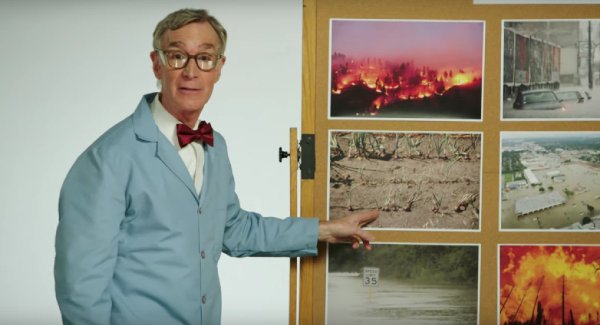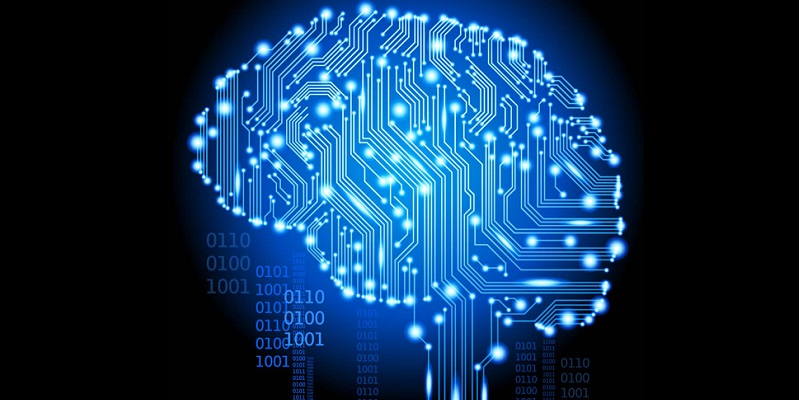Which of these statements is true? 1. “We only use a small potential of our brain.” 2. “We are simply not cognitively incapable of solving such a complex problem as climate change.” 3.“We just haven’t yet figured out how to put collective will into the matter.”
A popular canard about the human brain is that we only use a small fraction of it. This is countered by neuroscientists, who say equally meaningless things like: “All 86 billion neurons are programmed to self-destruct if they fail to wire up properly to active, useful circuits.”
“Fail to wire up properly to active, useful circuits?” Given the amount of psychotropics prescribed in North America, powerful brain drugs that externally affect people’s mental and emotional states, that’s an incredibly obtuse thing for a psychologist to say.
The neuroscientific gospel goes even further however. One of its tenets is that “The brain is a glutton for energy — accounting for about 20% of calorie expenditure, despite making up only 2% of body mass — and has little tolerance for waste or excess. All 86 billion neurons are programmed to self-destruct if they fail to wire up properly to active, useful circuits.” (Italics mine.)
Sure, and this is the best of all possible psychological, social, economic and political worlds. Obviously we are not “wiring up properly,” or there would be an adequate response to the rapid extinction of animal and plant species, as well as to climate change.
Bill Nye the Science Guy went bananas on the John Oliver Show on Sunday, torching a globe and yelling, “The planet’s on fucking fire!”

At once funny and wrenching, Nye continues to externalize an issue that’s essentially internal. Science externalizes everything. It couldn’t study anything if it didn’t.
So it simply doesn’t work to say, as Nye and many others do: “Science must shape policy. Science is universal. Science brings out the best in us. With an informed, optimistic view of the future, together we can — dare I say it — save the world!”
As far as I’m concerned, the world can continue to go to hell; we need to urgently focus on saving the earth and humanity.
Science cannot halt the destruction of the diversity of life due to man’s rapaciousness, and the warming of the earth due to man-made CO2 emissions, because science cannot replace the bygone restraints of religion. Religions have lost their hold over people’s minds and hearts, and good riddance to them.
There is still the question of the religious mind however—a mind is imbued, without a belief system, with a sense of life’s mystery.
The wrongful use of science and technology is what has brought us to this pass. Science is a tool, not the source of living truth. Then what is? Undirected attention, yielding effortless stillness, awakens the brain’s capacity for insight.
More cognition is not the solution, because cognition without insight is the problem. So it isn’t just that “we cannot solve our problems with the same thinking we used when we created them.” We cannot solve our problems through cognition at all.
The human brain has a huge untapped potential for insight, which is untapped because we’ve given so much emphasis to thought and cognition, reason and knowledge.
“Collective will” is synonymous with political will, and without igniting insight individually and together, calling for collective will is beating a dead horse.
A leap of consciousness is essential, and it can only occur through igniting insight within us, not through applying more science or ‘collective will’ outside us.
Insight has informed science every step of the way, but when scientific knowledge is put before insight, both are diminished. Therefore we have to make a clear distinction (without another separation and dualism) between cognition and insight.

Without reverting to the “man is the pinnacle of creation” idea that predominated in the 19th century and before, the human brain is the only brain on this astonishing planet with the capacity for conscious awareness of the mystery that imbues the universe.
The fact that using that same brain, Homo sap is bringing about the 6th mass extinction in the 3.5 billion-year history of life on earth is a cosmic conundrum. Philosophically, I feel I’ve cracked it, and though the explanation may be necessary, it isn’t sufficient to change the explained—you and me.
We are not cognitively capable of solving such a complex problem as climate change at the scientific and epistemological level, but our brains have another capacity, that of insight. Awakening it is the remedy.
Therefore the answers to my opening questions are, as far as I can see are: 1. True, but in a very different way than we imagine. 2. True, in the Einsteinian sense, “We cannot solve our problems with the same thinking we used when we created them.” 3. False, ‘figuring things out’ and ‘collective will’ are the same old thinking.
Martin LeFevre

